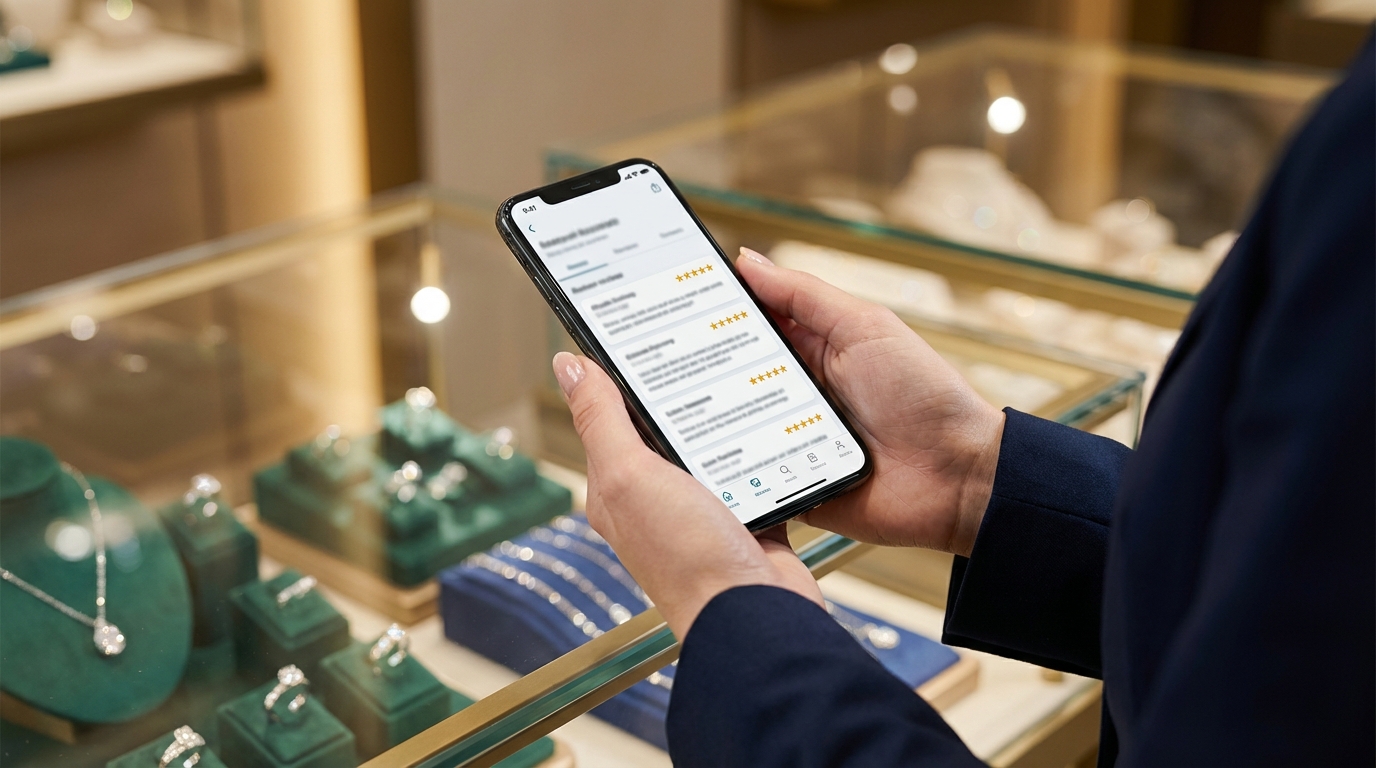It’s become a familiar scene in the world of retail: a shopper walks in, pulls out their phone, and says, “I already looked this up online” before a sales associate can say so much as say hello.
According to a recent Retail Systems Research survey, 36% of retailers say that hyper-informed shoppers are one of the biggest threats to their business. And it’s easy to see why. Customers walk in with pricing comparisons, product specs, influencer reviews, and even competitor promotions ready at their fingertips.
Associates are then expected to match that level of knowledge in real time, often while juggling multiple clients, managing inventory, or handling back-end systems.
But here’s the truth: data alone doesn’t close a sale. Relationships do. While hyper-informed shoppers may know what they want, it takes a trusted advisor to help them understand why—and to make them feel confident about where they buy it.
Let’s take a look at what we can learn from the hyper-informed shopper and how to sell to them.
The opportunity: The rise of the hyper-informed shopper
The “hyper-informed” shopper isn’t just prepared—they’re empowered. They’ve spent hours comparing brands, scrolling reviews, and researching products online before stepping foot in a store. In fact, some know more about specific items than the sales associates presenting them.
That level of preparedness creates a unique challenge. The same survey found that 45% of retailers believe their associates waste too much time simply locating answers to customer questions. Instead of creating memorable experiences, associates are scrambling to catch up to the customer’s level of research.
But hyper-informed shoppers aren’t inherently a problem. In many ways, they’re the perfect customer: motivated, engaged, and already invested in making a purchase. The real issue is when there’s a knowledge gap—when associates don’t have the tools or information they need to add value beyond what a shopper can find online.
The problem: The knowledge gap for sales associates
When customers arrive with a mountain of online research, associates can feel like they’re already behind. Without quick access to the right information, many fall back on generic responses or transactional interactions. They’re forced to toggle between outdated systems, hunt down client details scattered across sticky notes or spreadsheets, and spend much of the interaction trying to prove their knowledge rather than building trust.
The result is a sales experience that feels reactive rather than relational. Shoppers walk away having learned nothing they couldn’t find online, and stores risk losing not only the sale, but also the long-term loyalty that comes from a true connection.
The solution: What associates can do better than Google
Here’s the good news: while shoppers may know the technical details of a product, they don’t know how that product fits into their personal story. That’s where associates shine.
A knowledgeable associate can take what the customer already knows and build on it with personalization, helping them see how a piece of jewelry connects to a milestone or complements their existing collection. They can provide human insights that no review site can replicate, offering styling suggestions, pairing ideas, or care advice specific to the client’s lifestyle. Most importantly, they can create emotional connections—remembering a client’s engagement story, sending a birthday text, or suggesting a piece that feels uniquely “them.”
Shoppers may walk in with knowledge, but they still crave reassurance and guidance from someone who understands them, not just the product.
How to bridge the knowledge divide
Closing this gap requires a shift in mindset. Associates don’t need to out-research their clients on competitor pricing and options. Instead, they need to add context, personalization, and expertise that elevate the client’s existing knowledge.
That starts with preparation—reviewing client notes before appointments, recalling important milestones, and coming to every interaction with a story to tell. It also requires curiosity, asking open-ended questions that uncover motivations beyond the specs.
Most importantly, associates need tools that allow them to access client history and preferences instantly. The ability to recall details from a past conversation or purchase creates a seamless experience, transforming a transactional interaction into a relationship built on trust.
Where Clientbook comes in
This is where technology can transform the associate experience. Clientbook, a CRM built for jewelers, is designed to give associates a living memory of every client relationship, ensuring that associates never walk into a conversation unprepared.
With Clientbook, associates can:
- Instantly pull up client profiles with past purchases, notes, and wishlists.
- Use reminders and automations to follow up at just the right time.
- Access everything on mobile, so insights are available right on the sales floor.
Instead of scrambling to keep pace with hyper-informed shoppers, associates step into conversations with confidence, equipped to turn information into connection.
Conclusion
Hyper-informed shoppers aren’t a threat to retail—they’re an opportunity. When associates have the tools to bring context, personalization, and human insight into every interaction, they don’t just keep up with the customer. They lead the conversation.
With Clientbook, jewelers and luxury retailers can bridge the knowledge divide and transform the hyper-informed shopper into a loyal, lifelong client. If you’re ready to see what it can do for your store, book a demo today.





